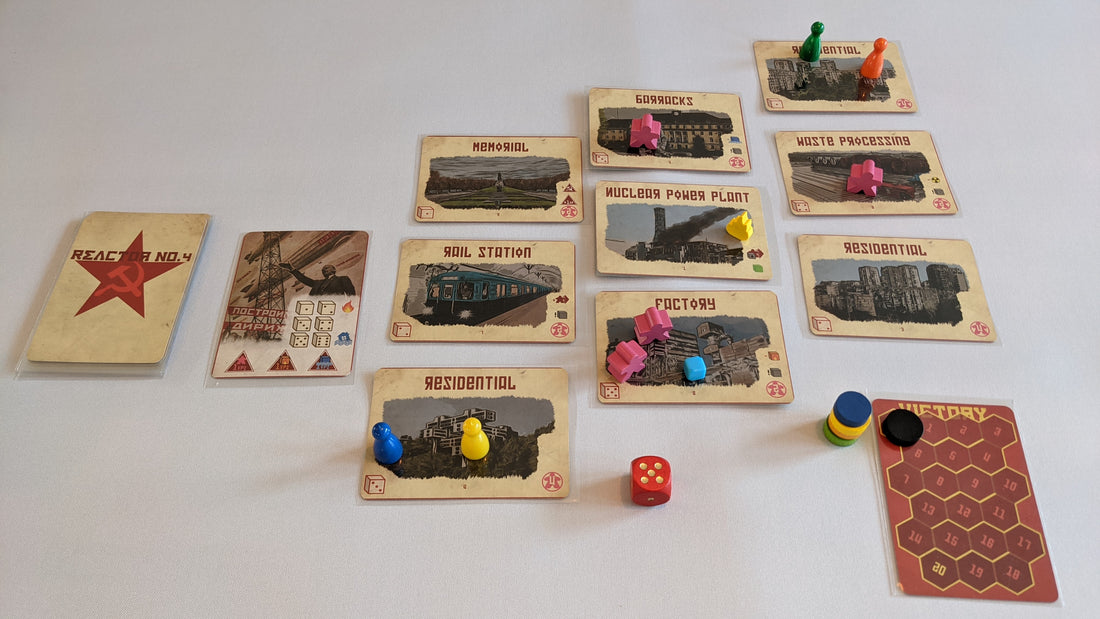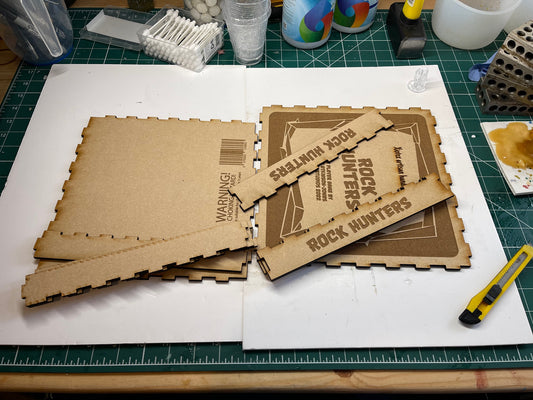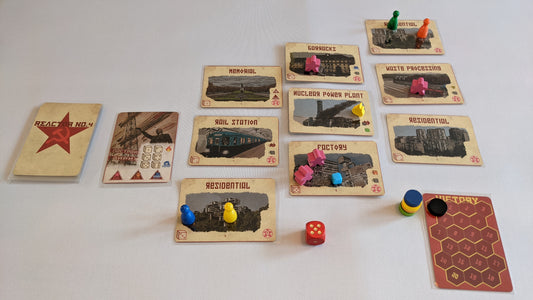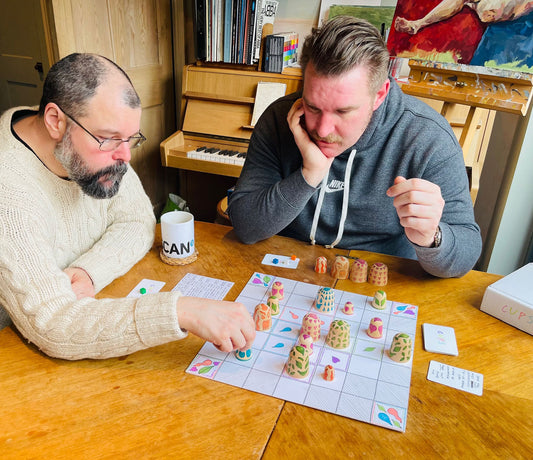What’s your day job, what games have you worked on, how long have you been creating games?
I'm Christopher "Ched" Chetwood. I'm 42 and from a small town in North Wales called Hawarden. I currently live in Peterborough with my wife Louise and three kids; Noah, William and Isabelle. I'm a spacecraft design engineer in my professional life, but I love designing and playing games in my spare time.
In 2020 I developed 12 PNP games in a self-set 1-game-a-month challenge. As a result I designed Anisoptera, Reactor No.4 and Vocational Guidance for Androids.

What was the first board game you remember playing?
I remember playing Monopoly and Ludo as a small child as well as Ghost Castle.
Was there a specific game that hooked you on board games or opened your eyes wider to other games?
Space Crusade. That game blew my mind - it was such a leap from the casual game I had been exposed to.
Are there particular games you like to play the most, any themes or mechanics you enjoy the most?
I like Euro games, and I love space themes, funny enough, but I also am a sucker for post apocalyptic themes. In terms of specific games, I really enjoy Scythe and Outlive.
How did you first get into designing/creating your own board games?
I always loved creating stuff as a child and I started creating games in my early teenage years. This started out with board games, but moved onto video games in the late 1990s and early 2000s. I came back to board games in 2017.
What sort of video games did you create?
I used to create small indie games in either 2D or 3D - none of them were very good mind :) I had various space games, the Vacuum, Astrodroids, etc. as well as a 3D puzzle game involving energy drinks that gave you special powers :) it was the creating process I enjoyed.
Where do you start your ideation process when working on a new game?
I usually start by looking through the theme suggestions from Ludum Dare, which is a 48 hour video game creation competition held about 3 times a year. I find the suggestions really inspiring and the games that come out of it, tend to be more interesting and unique. Occasionally a game idea will just appear to me and I'll develop that, but most of the time, I use the theme suggestion route.
With the Ludlum Dare theme ideas, what’s your next step after you have the theme?
After I have a theme idea I try and brainstorm around it and to try and attach a mechanic, or set of mechanics and a some concept art.

What draws you to self publishing your games as print and play games, rather than say trying a kickstarter or approaching a publisher?
Time basically. I don't have time to work to a publishers time-frame, nor discuss and negotiate with them. By self publishing, i can work at my own pace and not feel guilty if i need to take a break from developing when work or life gets a bit hectic.
Who do you usually play test with, friends, family, local gaming groups, remotely on tabletop simulator?
All the early testing is done in Tabletop Simulator, but when I feel it's ready I print the game out and test with other humans at my local gaming club in Peterborough.
Do you do all the artwork for your games, or do you collaborator with others on them?
I prefer to do my own artwork, I really love the art side of development and I like to push myself to create something better each time.
Where do you find your inspiration for game ideas mostly comes from?
I think a combination of life experiences and play-testing. I'll have an idea of how the game should feel, then I'll test a bunch of ideas to see which feels right and usually something odd will jump into the mix while I'm testing and that'll be the idea I run with.
Are there any projects you’re working on currently?
Many, I usually have several developments running in parallel, but the most developed one at the moment is a post apocalyptic adventure game called A FUTILE Adventure. It's a game involving 7 decks of cards and you explore the different decks as you wander the wastelands and solve problems.
If you are a game designer, artist or work in the games industry, perhaps you could be in one of our future interviews, drop us an email.




